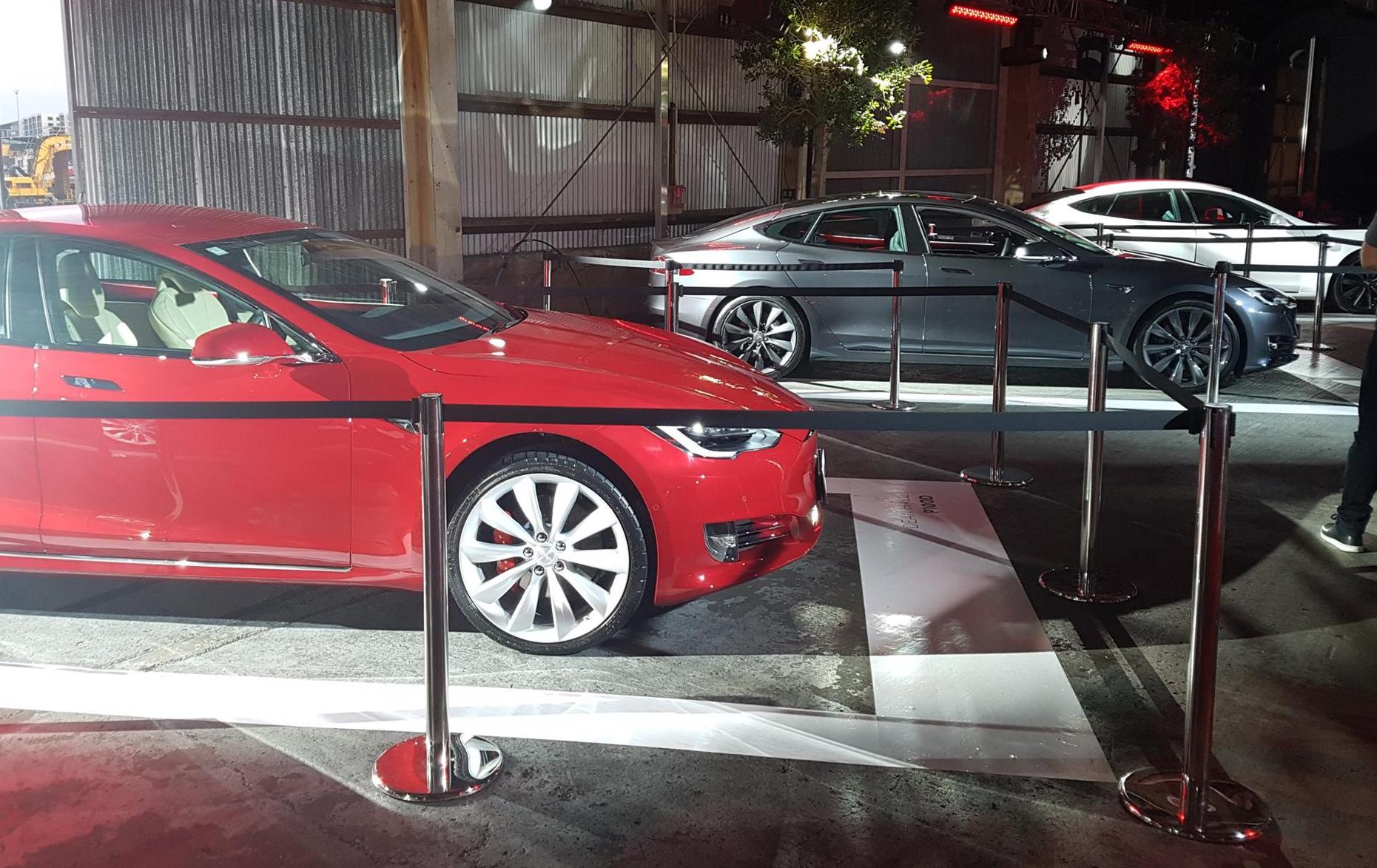
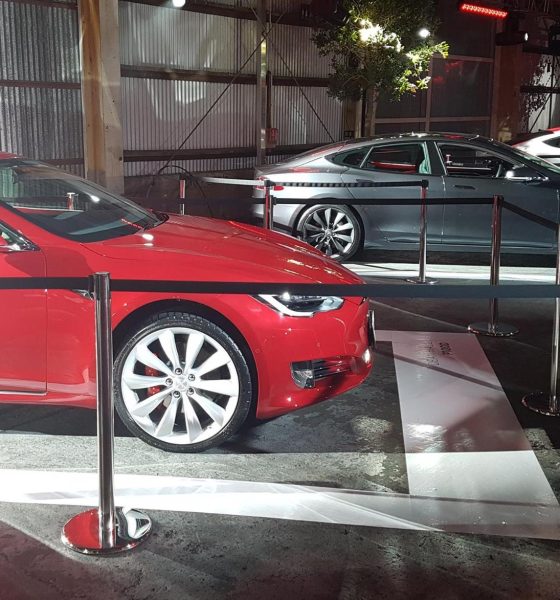
Investor's Corner
Tesla poised to disrupt the entire transportation industry, not just auto
The following post was originally published on EVANNEX
With Tesla’s first quarter earnings call coming on Wednesday, it’s critical to maintain some perspective. There’s one prescient Wall Street analyst who has a history of predicting Tesla’s future while providing some much-needed perspective. Morgan Stanley Auto and Mobility Analyst Adam Jonas was a Tesla [NASDAQ: TSLA] bull before there was anything you could call a herd. Way back in 2013, when TSLA stock first started soaring, and the company announced that it would pay back its DOE loan several years early, Jonas called the company “our new top pick in US autos.”
Jonas hasn’t always been sure about Tesla though. In 2014, the stock dipped and Jonas waxed more skeptical. In early 2015, with Model X in development and construction beginning on the Gigafactory, Jonas wrote that Tesla has just pushed the “insane button” (in a good way, presumably). “Seems Tesla is preparing to be a much larger company than we have forecast.” A few months later, after Elon Musk evaded a question about the possibility of a Tesla ride-sharing service, Jonas predicted the coming of the Tesla Network, a year before it was formally announced, and speculated that the potential profits could cause the stock price to double (it hasn’t yet – TSLA was around 230 at the time).
In a recent interview (video starts at 17 minutes, 11 seconds, see below) with Business Insider’s Matthew DeBord, Jonas talks about Tesla’s “insane” market capitalization, how other automakers see the upstart company, and Tesla’s future place in the transportation realm.
No, TSLA’s meteoric rise isn’t a hallucination or a case of mass insanity. After all, market disruption isn’t exactly a new thing. “We saw it with Cornelius Vanderbilt and the railroads,” says Jonas. “We saw it with Thomas Edison and the electric utility grid. There were times when people thought men like these were crazy. Henry Ford’s bankers were pretty furious at the risk he was taking with the moving assembly line. But they did it. And once in a while, these things pay off. Elon Musk is in that genre of capitalist/scientist/storyteller.”
What do the men (and one woman) in the corner offices feel about Tesla and Musk? Scorn, respect, fear? “When we engage with auto companies around the world, they admit that that car that [Tesla has] developed is a good car – it’s not a fluke,” says Jonas. “The industry has a reputation of being arrogant. ‘Our cars are the best!’ Even these types of companies say, ‘we’re glad that Tesla is around in many ways.’” The mood includes “more respect than fear, but some concern.”
How much in the way of future sales are baked into TSLA’s sky-high stock price? A lot. To justify its new status as one of the world’s largest automakers by market cap (see chart below), Tesla would have to reach “something approaching a BMW type of scale of a couple million units a year at some point…an order of magnitude higher than what they’ve been doing… and to be making money doing that.”
However, the future isn’t all about the volume of auto sales. Tesla envisions an entire new transportation ecosystem, one that incorporates vehicle autonomy, ride-sharing and distributed renewable energy. “The sooner the market can start to view Tesla as something other than just selling machines for people to own privately and operate in some automated form themselves… the more the events of the next few years are going to make sense,” says Jonas. “We see Tesla as disrupting transportation, not just the automotive industry.”

Elon Musk
Tesla locks in Elon Musk’s top problem solver as it enters its most ambitious era
The generous equity award was disclosed by the electric vehicle maker in a recent regulatory filing.
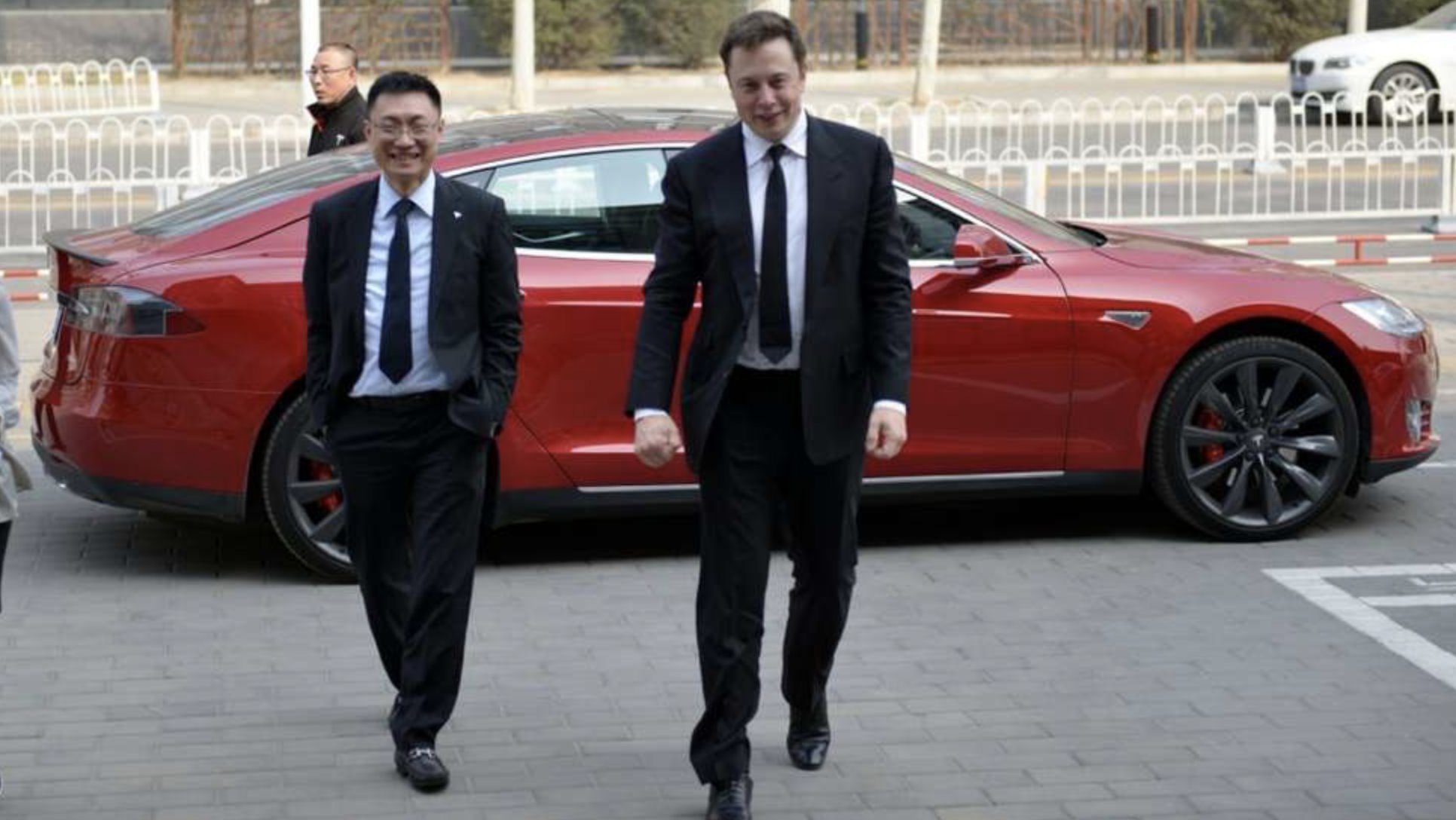
Tesla has granted Senior Vice President of Automotive Tom Zhu more than 520,000 stock options, tying a significant portion of his compensation to the company’s long-term performance.
The generous equity award was disclosed by the electric vehicle maker in a recent regulatory filing.
Tesla secures top talent
According to a Form 4 filing with the U.S. Securities and Exchange Commission, Tom Zhu received 520,021 stock options with an exercise price of $435.80 per share. Since the award will not fully vest until March 5, 2031, Zhu must remain at Tesla for more than five years to realize the award’s full benefit.
Considering that Tesla shares are currently trading at around the $445 to $450 per share level, Zhu will really only see gains in his equity award if Tesla’s stock price sees a notable rise over the years, as noted in a Sina Finance report.
Still, even at today’s prices, Zhu’s stock award is already worth over $230 million. If Tesla reaches the market cap targets set forth in Elon Musk’s 2025 CEO Performance Award, Zhu would become a billionaire from this equity award alone.
Tesla’s problem solver
Zhu joined Tesla in April 2014 and initially led the company’s Supercharger rollout in China. Later that year, he assumed the leadership of Tesla’s China business, where he played a central role in Tesla’s localization efforts, including expanding retail and service networks, and later, overseeing the development of Gigafactory Shanghai.
Zhu’s efforts helped transform China into one of Tesla’s most important markets and production hubs. In 2023, Tesla promoted Zhu to Senior Vice President of Automotive, placing him among the company’s core global executives and expanding his influence beyond China. He has since garnered a reputation as the company’s problem solver, being tapped by Elon Musk to help ramp Giga Texas’s vehicle production.
With this in mind, Tesla’s recent filing seems to suggest that the company is locking in its top talent as it enters its newest, most ambitious era to date. As could be seen in the targets of Elon Musk’s 2025 pay package, Tesla is now aiming to be the world’s largest company by market cap, and it is aiming to achieve production levels that are unheard of. Zhu’s talents would definitely be of use in this stage of the company’s growth.
Investor's Corner
Tesla analyst teases self-driving dominance in new note: ‘It’s not even close’
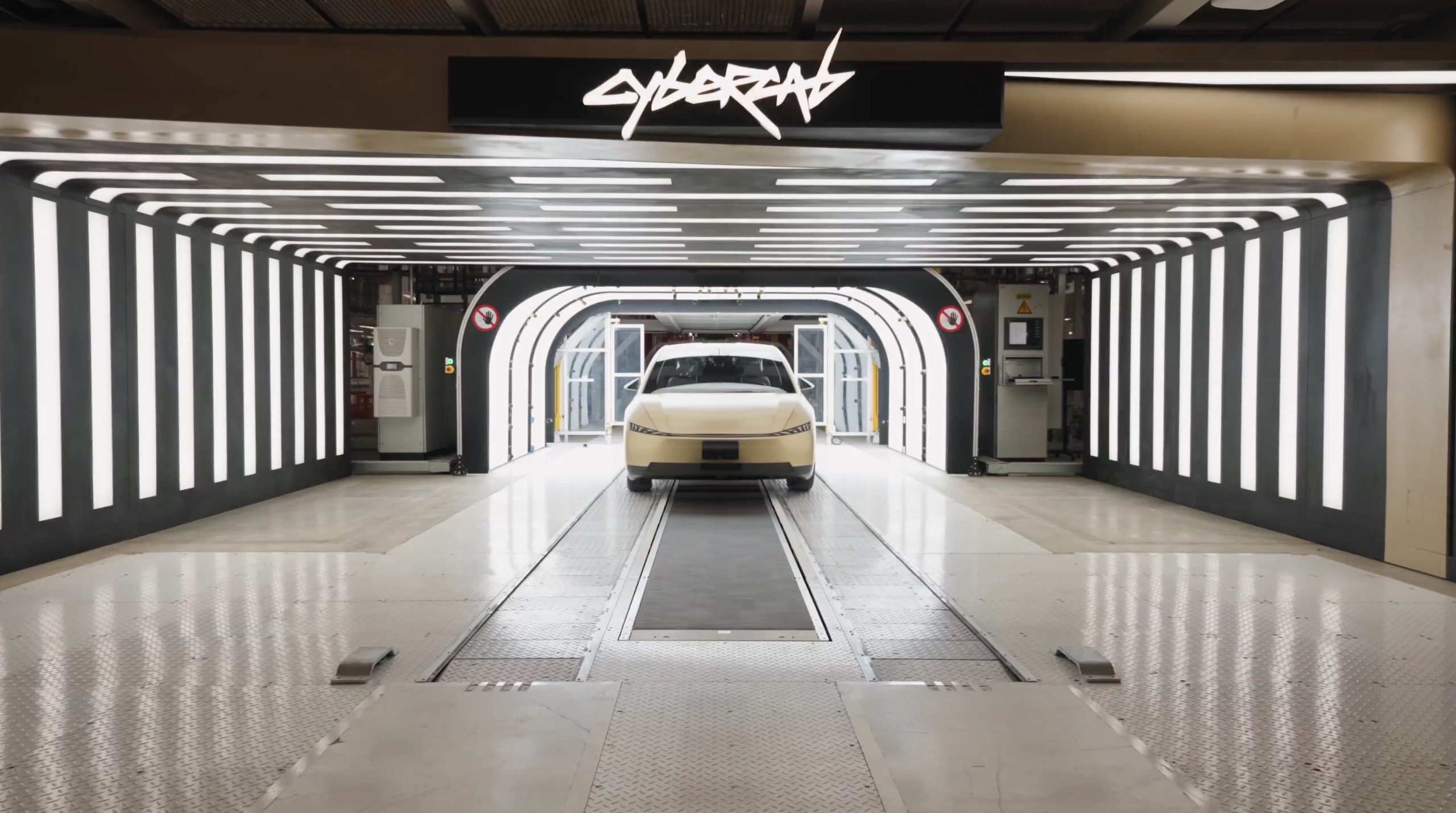
Tesla analyst Andrew Percoco of Morgan Stanley teased the company’s dominance in its self-driving initiative, stating that its lead over competitors is “not even close.”
Percoco recently overtook coverage of Tesla stock from Adam Jonas, who had covered the company at Morgan Stanley for years. Percoco is handling Tesla now that Jonas is covering embodied AI stocks and no longer automotive.
His first move after grabbing coverage was to adjust the price target from $410 to $425, as well as the rating from ‘Overweight’ to ‘Equal Weight.’
Percoco’s new note regarding Tesla highlights the company’s extensive lead in self-driving and autonomy projects, something that it has plenty of competition in, but has established its prowess over the past few years.
He writes:
“It’s not even close. Tesla continues to lead in autonomous driving, even as Nvidia rolls out new technology aimed at helping other automakers build driverless systems.”
Percoco’s main point regarding Tesla’s advantage is the company’s ability to collect large amounts of training data through its massive fleet, as millions of cars are driving throughout the world and gathering millions of miles of vehicle behavior on the road.
This is the main point that Percoco makes regarding Tesla’s lead in the entire autonomy sector: data is King, and Tesla has the most of it.
One big story that has hit the news over the past week is that of NVIDIA and its own self-driving suite, called Alpamayo. NVIDIA launched this open-source AI program last week, but it differs from Tesla’s in a significant fashion, especially from a hardware perspective, as it plans to use a combination of LiDAR, Radar, and Vision (Cameras) to operate.
Percoco said that NVIDIA’s announcement does not impact Morgan Stanley’s long-term opinions on Tesla and its strength or prowess in self-driving.
NVIDIA CEO Jensen Huang commends Tesla’s Elon Musk for early belief
And, for what it’s worth, NVIDIA CEO Jensen Huang even said some remarkable things about Tesla following the launch of Alpamayo:
“I think the Tesla stack is the most advanced autonomous vehicle stack in the world. I’m fairly certain they were already using end-to-end AI. Whether their AI did reasoning or not is somewhat secondary to that first part.”
Percoco reiterated both the $425 price target and the ‘Equal Weight’ rating on Tesla shares.
Investor's Corner
Tesla price target boost from its biggest bear is 95% below its current level
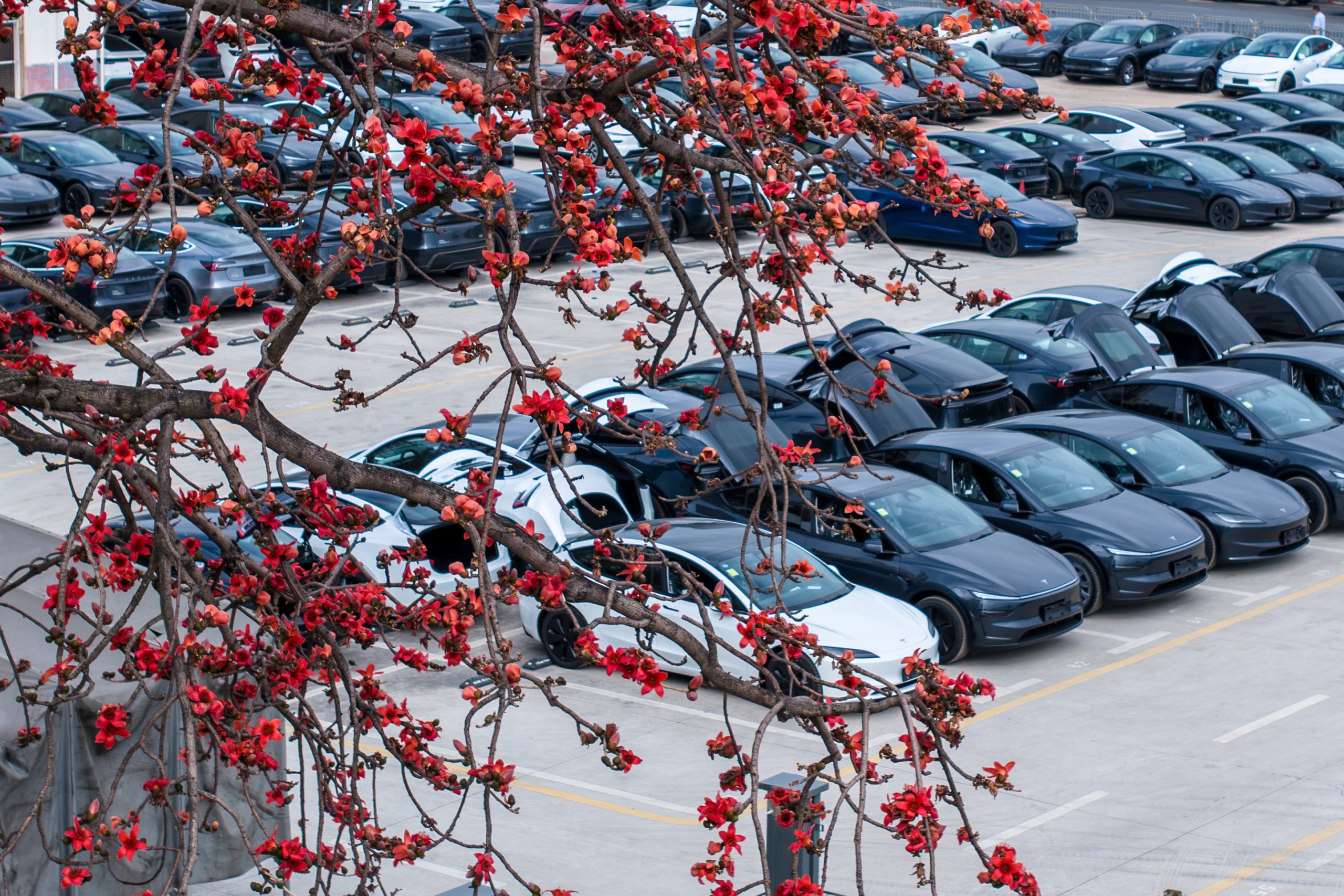
Tesla stock (NASDAQ: TSLA) just got a price target boost from its biggest bear, Gordon Johnson of GLJ Research, who raised his expected trading level to one that is 95 percent lower than its current trading level.
Johnson pushed his Tesla price target from $19.05 to $25.28 on Wednesday, while maintaining the ‘Sell’ rating that has been present on the stock for a long time. GLJ has largely been recognized as the biggest skeptic of Elon Musk’s company, being particularly critical of the automotive side of things.
Tesla has routinely been called out by Johnson for negative delivery growth, what he calls “weakening demand,” and price cuts that have occurred in past years, all pointing to them as desperate measures to sell its cars.
Johnson has also said that Tesla is extremely overvalued and is too reliant on regulatory credits for profitability. Other analysts on the bullish side recognize Tesla as a company that is bigger than just its automotive side.
Many believe it is a leader in autonomous driving, like Dan Ives of Wedbush, who believes Tesla will have a widely successful 2026, especially if it can come through on its targets and schedules for Robotaxi and Cybercab.
Justifying the price target this week, Johnson said that the revised valuation is based on “reality rather than narrative.” Tesla has been noted by other analysts and financial experts as a stock that trades on narrative, something Johnson obviously disagrees with.
Dan Nathan, a notorious skeptic of the stock, turned bullish late last year, recognizing the company’s shares trade on “technicals and sentiment.” He said, “From a trading perspective, it looks very interesting.”
Tesla bear turns bullish for two reasons as stock continues boost
Johnson has remained very consistent with this sentiment regarding Tesla and his beliefs regarding its true valuation, and has never shied away from putting his true thoughts out there.
Tesla shares closed at $431.40 today, about 95 percent above where Johnson’s new price target lies.








